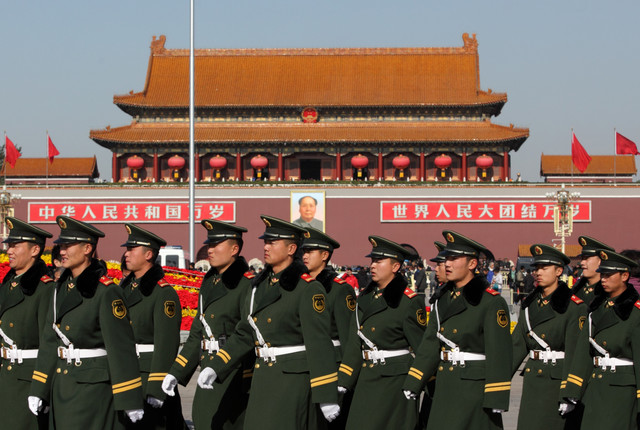More on al-Aulaqi and Transparency
In response to some push back, and at the risk of some repetition, I would like to clarify a bit more why I think there is no serious bar to the government revealing more about the legal basis for its action against al-Awlaki in Yemen.
There are very good reasons why the government might not want to officially and openly talk about a covert operation despite the fact that, as Ben says, everyone in the world knows about it. As Abe Shulsky and Gary Schmitt gingerly say of covert actions in their excellent (though somewhat outdated)
Published by The Lawfare Institute
in Cooperation With

In response to some push back, and at the risk of some repetition, I would like to clarify a bit more why I think there is no serious bar to the government revealing more about the legal basis for its action against al-Awlaki in Yemen.
There are very good reasons why the government might not want to officially and openly talk about a covert operation despite the fact that, as Ben says, everyone in the world knows about it. As Abe Shulsky and Gary Schmitt gingerly say of covert actions in their excellent (though somewhat outdated) book on intelligence:
[T]here may be cases in which a good deal of information about operations becomes public, but for diplomatic or other reasons, governments involved avoid officially acknowledging their connection with them. … [I]t is less provocative and less disruptive to diplomatic relations not to acknowledge an operation even if the country adversely affected by it is well aware of one's involvement. The target country, either in the interests of good relations or because it cannot effectively prevent it, may ignore the covert action; it is much harder for it to do so if the government conducting it publicly acknowledges what it is doing.I accept this and related explanations as reasons not to acknowledge the action officially. But maintaining technical covertness is not an absolute value or an absolute bar to more transparency. There are at least two competing factors to consider: First, it is wrong, as Ben notes, for the government to maintain technical covertness but then engage in continuous leaks, attributed to government officials, of many (self-serving) details about the covert operations and their legal justifications. It is wrong because it is illegal. It is wrong because it damages (though perhaps not destroys) the diplomatic and related goals of covertness. And it is wrong because the Executive branch seems to be trying to have its cake (not talking about the program openly in order to serve diplomatic interests and perhaps deflect scrutiny) and eat it too (leaking promiscuously to get credit for the operation and to portray it as lawful). I do not know if the leaks are authorized in some sense or not, or where in the executive branch they come from, or what if anything the government might be doing to try to stop them. But of course the president is ultimately responsible for the leaks. One might think – I am not there yet, but I understand why someone might be – that the double standard on discussing covert actions disqualifies the government from invoking technical covertness to avoid scrutiny. Second, there is no bar grounded in technical covertness, or in concerns about revealing means and methods of intelligence gathering, to revealing (either in a redacted opinion or in a separate document) the legal reasoning supporting a deadly strike on a U.S. citizen. John Brennan and Harold Koh have already talked about the legality of strikes outside Afghanistan in abstract terms, mostly focusing on international law. I don’t think much more detail on the international law basis is necessary; nor do I think that more disclosure on international law would do much to change the minds of critics who believe the strikes violate international law. But there has been practically nothing said officially (as opposed through leaks and gestures and what is revealed in between the lines in briefs) about the executive branch processes that lie behind a strike on a U.S. citizen, or about what constitutional rights the U.S. citizen target possesses, or about the limitations and conditions on the president’s power to target and kill a U.S. citizen. This information would, I think, matter to American audiences that generally support the president on the al-Aulaqi strike but want to be assured that it was done lawfully and with care. The government could easily reveal this more detailed legal basis for a strike on a U.S. citizen without reference to particular operations, or targets, or means of fire, or countries.
Jack Goldsmith is the Learned Hand Professor at Harvard Law School, co-founder of Lawfare, and a Non-Resident Senior Fellow at the American Enterprise Institute. Before coming to Harvard, Professor Goldsmith served as Assistant Attorney General, Office of Legal Counsel from 2003-2004, and Special Counsel to the Department of Defense from 2002-2003.


.jpg?sfvrsn=118b03e5_5)


